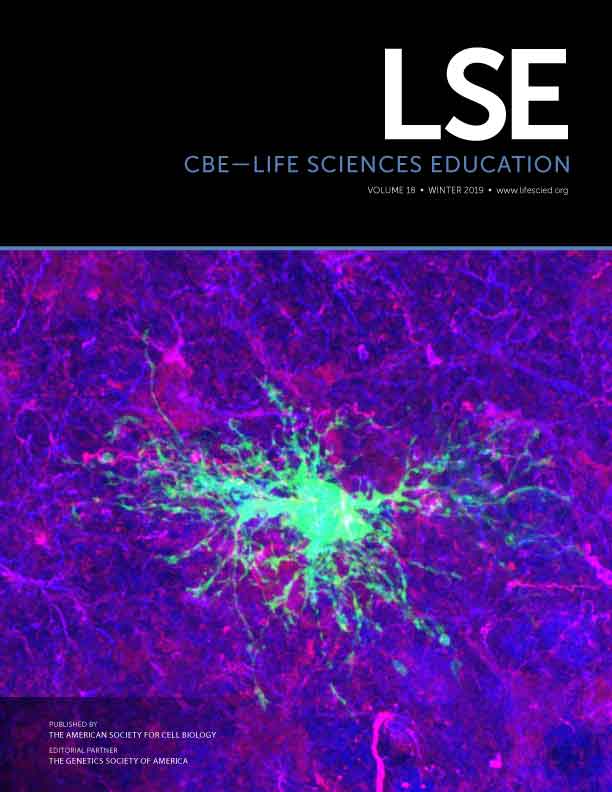“Where’s My Mentor?!” Characterizing Negative Mentoring Experiences in Undergraduate Life Science Research
Abstract
Undergraduate research experiences in science, technology, engineering, and mathematics fields are championed for promoting students’ personal and professional development. Mentorship is an integral part of undergraduate research, as effective mentorship maximizes the benefits undergraduates realize from participating in research. Yet almost no research examines instances in which mentoring is less effective or even problematic, even though prior research on mentoring in workplace settings suggests negative mentoring experiences are common. Here, we report the results of a qualitative study to define and characterize negative mentoring experiences of undergraduate life science researchers. Undergraduate researchers in our study reported seven major ways they experienced negative mentoring: absenteeism, abuse of power, interpersonal mismatch, lack of career support, lack of psychosocial support, misaligned expectations, and unequal treatment. They described some of these experiences as the result of absence of positive mentoring behavior and others as actively harmful behavior, both of which they perceive as detrimental to their psychosocial and career development. Our results are useful to mentors for reflecting on ways their behaviors might be perceived as harmful or unhelpful. These findings can also serve as a foundation for future research aimed at examining the prevalence and impact of negative mentoring experiences in undergraduate research.



